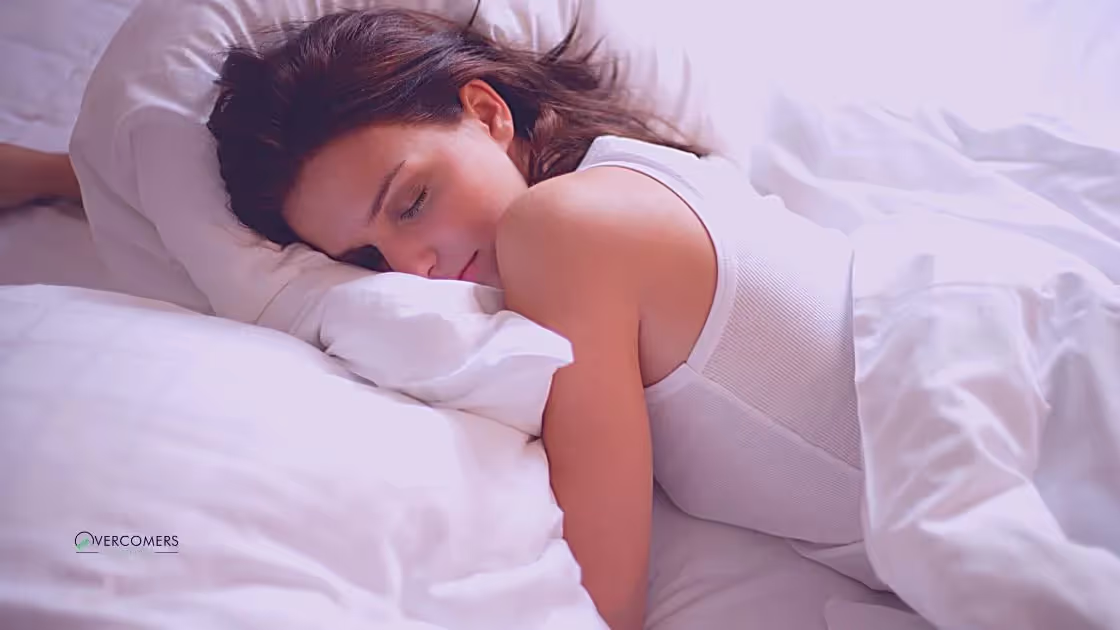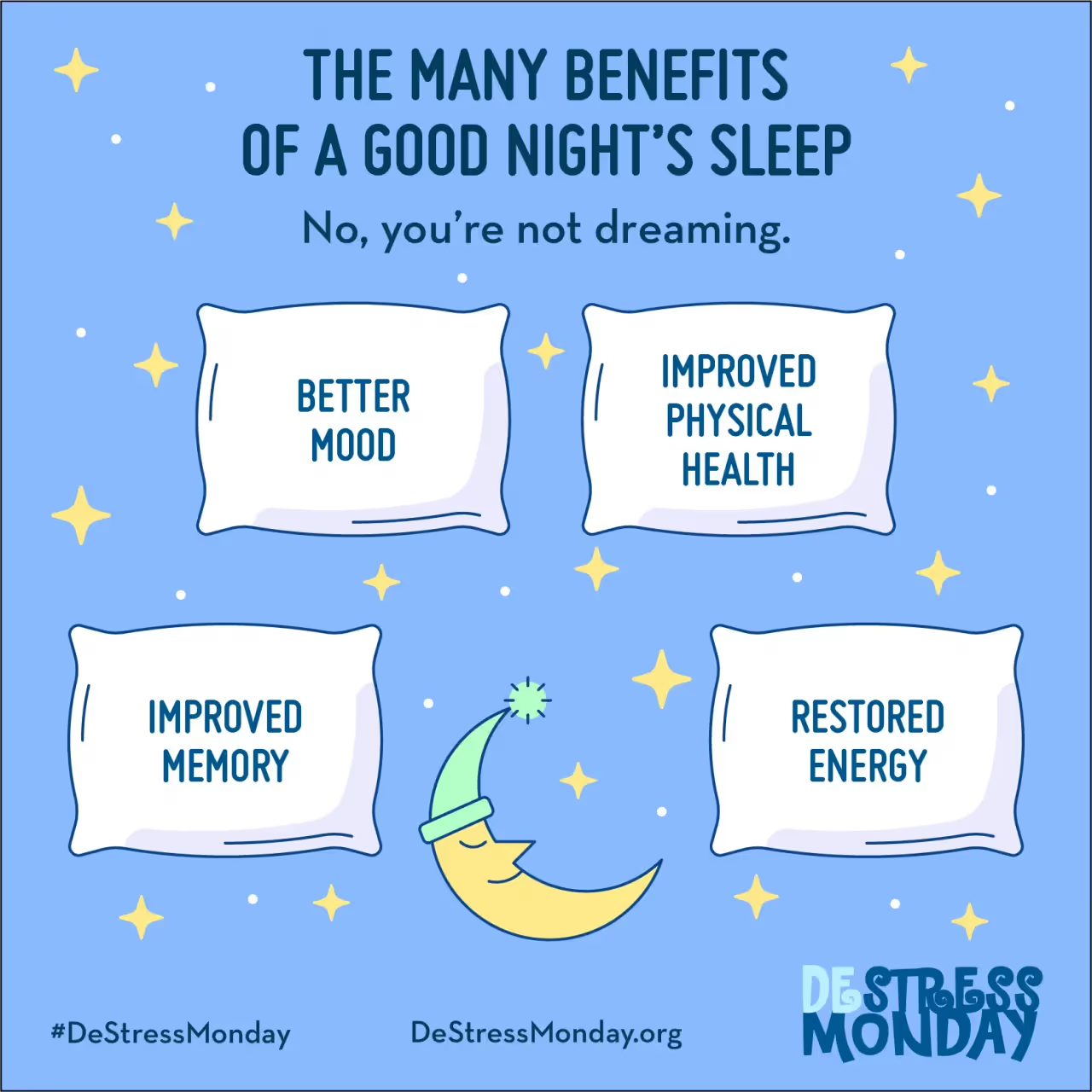Anxiety is the worry about future events.Throughout the day there are usually plenty of things on the to-do list that keeps you busy so you may not realize...

Anxiety is the worry about future events.
Throughout the day there are usually plenty of things on the to-do list that keeps you busy so you may not realize you are anxious.
Then it comes time to fall asleep and suddenly your mind is flooded with yet another to-do list for all the things that need your attention over the next day, week, or year, and you can't sleep.
Then you get up the next morning, without good sleep, so you're more stressed, more anxious, and get fewer things done.
Sounds familiar?
This pattern is very common, and why it's so important to be able to get quality sleep when you want it.
Better sleep improves your problem-solving ability, organizes your thoughts, and decreases stress which decreases anxiety.
So, let's find out how to improve sleep to have less anxiety.
Our eyes, among other functions, do an incredible job of sending signals for when it's time to get up and go to sleep.
They do this by adjusting to light exposure, and they are highly sensitive!
When we are exposed to the overhead light, our eyes send signals to the brain that it's time to be awake, and when the source of light is from below our eye line it sends signals to prepare for sleep.
This is the first step in downregulation for a peaceful night of sleep.
Most people scroll on their phones in bed or watch shows before falling asleep which sends mixed signals to the brain as your eyes are taking in Blue Light which is stimulating.
Blue light tells your brain, "hey, be active!"
2 easy fixes to help your mind and body prepare for sleep are eliminating overhead light an hour before bed by using bedside lamps or candles, and, if you "have to" watch or scroll before bed, getting a pair of Blue Light Glasses (but it is far better not to watch anything an hour before bed, like way better, seriously, WAY better).
More conscious use of lighting equals less anxiety.
Another proven tool to help create less anxiety, inflammation, stress, depression, and negative thinking, as well as lower blood pressure, and improve positive emotions, empathy, patience, and focus is Meditation.
Regular meditation for 5 minutes before bed improves the overall quality of sleep as well as the ability to fall asleep quicker.
Here's what you do:
1) sit in a comfortable position ad set a timer for 5 minutes.
2) Close your eyes and count each exhale.
3) Once you get to 10 restart.
Simple as that!
It's hard at first and you're mind will wander, simply bring your attention back to your breathing over and over again.
Do this every day and after a couple of weeks you'll wonder how you ever fell asleep without it!

A major contributor to anxiety is disorganization.
So, organization equals less anxiety.
Start with a daily routine.
Go to bed at the same time every night; wake up at the same time every morning; create a routine for before bed and when you wake up.
Consistency is key.
Creating a routine allows your mind to concentrate on concrete tasks that propel dopamine and decrease anxiety.
The more focus you have on simple tasks the less your mind is able to take you down rabbit holes of anxiety.
Like meditation, this takes practice and trial and error to find a routine that works for you.
Also like meditation, once it becomes a habit you'll wonder how you ever managed before.
You'll be amazed at how much less anxiety you have by creating a simple routine.
Especially creating a routine before bed and waking up.
This allows your body to get more and more signals for when it's time to sleep, and no longer time to think.
As Dr. Matthew Walker once said, "Sleep is our superpower."
Our quality of sleep determines our life expectancy, and ability to fight viruses and illness, and largely determines our ability to control stress and anxiety.
If you want less anxiety, get better sleep.
Be attentive to where the light sources our in your home and when you're preparing to go to sleep.
Make meditation a daily practice.
And, lastly, establish a simple morning and evening routine to help reinforce when your mind should be turning off.
Yes, Medicaid provides insurance coverage for therapy services specifically designed to help individuals struggling with anxiety, depression, and other mental health conditions.
Other activities which have been found helpful in reducing both immediate feelings of anxiousness and long-term anxieties associated with chronic disorders include yoga, journaling, nature walks, art therapy, volunteering, and other low-stress activities. Additionally, developing a healthy lifestyle incorporating adequate sleep, physical activity, and nutritious meals can help reduce overall stress levels.
Addressing anxiety is crucial because it can significantly impact your quality of life and overall well-being. Left untreated, anxiety can lead to more severe mental health issues, relationship problems, and difficulty functioning in daily life.
It's important that you feel comfortable discussing personal matters with your therapist in order to open up and get more out of therapy sessions; therefore finding someone who meets certain criteria like experience level, expertise areas, and personality is key when selecting a therapist who can give meaningful feedback about how best handle issues related to anxiety or other mental health concerns.
Ignoring anxiety can exacerbate symptoms and make it more challenging to manage over time. This can result in a negative impact on your personal, professional, and social life, leading to feelings of isolation and even depression.
To reduce your anxiety, you can practice relaxation techniques such as deep breathing, progressive muscle relaxation, guided imagery, and mindfulness practices. Additionally, regular exercise has been found to be beneficial in managing stress and improving mental health.